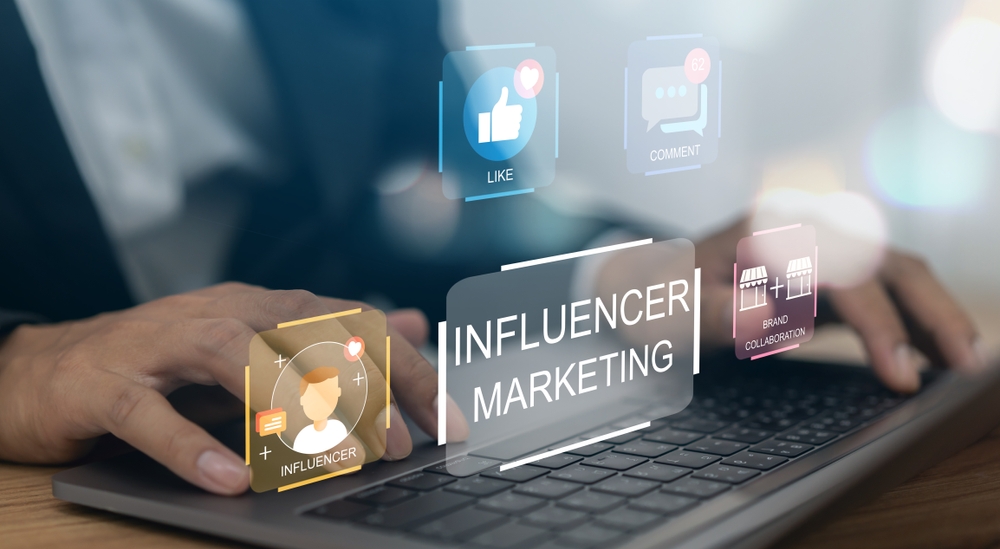
The Importance of Influencers in Marketing
In the age of digital media, the way brands connect with their audiences has drastically changed. Traditional advertising methods—TV commercials, billboards, and newspaper ads—still play a role, but they no longer dominate the marketing landscape. Instead, influencer marketing has emerged as one of the most powerful tools for brands looking to build trust, expand their reach, and drive real engagement.
But what exactly makes influencers so effective? And why should businesses—whether small startups or global enterprises—take them seriously as part of their marketing strategy?
Let’s explore the importance of influencers in today’s marketing world and how they can help businesses grow and thrive.
What is Influencer Marketing?
Influencer marketing is a form of collaboration between a brand and an individual who has a dedicated following on social media platforms like Instagram, YouTube, TikTok, Twitter, or even blogs and podcasts. These individuals—known as influencers—have built credibility and trust with their audiences, making them valuable voices for promoting products or services.
Instead of promoting directly to a large group of consumers, influencer marketing allows brands to reach their audience through someone they already admire and trust.
Trust and Authenticity
The foundation of influencer marketing lies in trust.
Consumers today are more skeptical than ever about traditional advertisements. They’re tired of being “sold to” and prefer authentic recommendations from real people—especially those they follow and engage with regularly.
Influencers have established personal brands and relationships with their audiences. When they endorse a product, it feels more like a recommendation from a friend rather than a scripted ad.
This authenticity leads to higher levels of:
- Engagement
- Brand loyalty
- Conversion rates
According to Nielsen, 92% of consumers trust recommendations from individuals (even if they don’t know them) over traditional advertising.
Reaching a Targeted Audience
One of the major benefits of influencer marketing is precision targeting.
Influencers typically cater to niche communities. Whether it’s fitness, beauty, tech, parenting, food, or travel—there’s an influencer for almost every industry and interest group.
This means brands can collaborate with influencers whose followers closely match their ideal customer profile, leading to more efficient and cost-effective campaigns.
Instead of wasting budget on broad, untargeted ads, businesses can reach exactly who they want, when they want, and how they want.
Cost-Effectiveness Compared to Traditional Advertising
While celebrity endorsements and high-profile influencers can be expensive, working with micro-influencers (those with 10,000 to 100,000 followers) or nano-influencers (fewer than 10,000 followers) can deliver excellent results on a smaller budget.
Micro and nano-influencers often have:
- Higher engagement rates
- More personal connections with their followers
- Lower collaboration fees
For small businesses and startups, this makes influencer marketing a more affordable and impactful alternative to traditional ad channels.
Boosting Brand Awareness and Visibility
When influencers talk about a product, they expose it to thousands—or even millions—of potential customers. This kind of reach can generate massive brand visibility in a short amount of time.
Moreover, since influencers often create content in unique and creative ways, they help brands stand out and stay top-of-mind in competitive markets.
Influencer marketing can also improve your:
- Social media following
- Website traffic
- Search engine visibility (through backlinks and mentions)
Content Creation and Repurposing
Another underrated benefit of working with influencers is the content they create.
Influencers are content creators at heart. They know how to craft engaging photos, videos, reels, and stories that resonate with their audience. Brands can often reuse this content across their own marketing channels—websites, newsletters, ads, and social media.
This not only saves time and resources but also ensures the content feels authentic and tailored to the platform.
Driving Sales and Conversions
Ultimately, the goal of any marketing strategy is to drive results—whether that means sales, sign-ups, downloads, or donations.
Influencers play a key role in moving followers through the customer journey:
- Awareness: Introducing new audiences to your brand
- Interest: Sharing benefits, features, and use cases
- Desire: Showcasing real-world usage and success stories
- Action: Encouraging followers to click, buy, or join
Many brands use discount codes, affiliate links, or limited-time offers through influencers to boost conversions and track performance.
Staying Relevant and Trendy
Influencers are often early adopters of new trends, platforms, and cultural moments. By collaborating with them, brands can stay relevant and align themselves with the latest online conversations and viral content.
Whether it’s a trending TikTok challenge, a new meme format, or a social issue, influencers give brands a chance to participate in cultural moments authentically.
This relevance helps humanize your brand and keeps you connected with the evolving interests of your target audience.
Long-Term Partnerships Build Brand Loyalty
While short-term influencer campaigns can deliver quick wins, long-term partnerships often yield better results.
When an influencer consistently shares a brand’s message over time, their followers are more likely to see it as a genuine part of the influencer’s lifestyle. This builds brand recall, loyalty, and deeper emotional connections.
Think of it this way: a one-time post might spark curiosity, but consistent storytelling builds trust and commitment.

